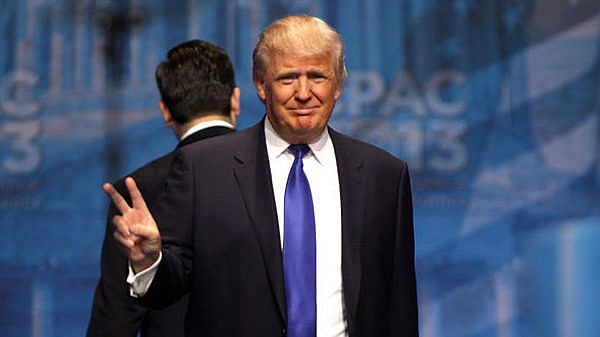It was a momentous week for social media. After years of trying to have it both ways, Twitter — one of the industry’s major platforms — moved to hold President Donald Trump accountable for the content in his posts under the same rules it applies to the general public. This decision to regulate some of Trump’s most controversial posts has now sparked a blacklash from the president, and spawned a new uncertain chapter for the industry.
It all started on Tuesday, when Twitter Inc. added a fact-check warning label to two of president’s posts about mail-in voting. In response, Trump threatened in a set of tweets Wednesday to “strongly regulate or close” down social-media platforms. He followed up by signing an executive order late Thursday that seeks to limit some of the broad liability protection social media companies have under federal law. Undaunted, Twitter escalated the situation early Friday by putting up a notice that obscured one of the president’s posts about protests in Minneapolis, which included the phrase “when the looting starts, the shooting starts.” Twitter said it violated the platform’s rules on “glorifying violence.” The back-and-forth will likely continue, but either way, this is a turning point.
Historically, Twitter and Facebook have walked a fine line when regulating content on their platforms, flagging or removing the most egregious posts while turning a blind eye to some polarizing content, including potentially misleading posts from elected officials. Critics have argued social media firms are incentivized to elevate content with binary takes that spur outrage, often with misinformation, as it drives more viral engagement over nuanced discussion with context. On Tuesday, the Wall Street Journal reported Facebook had glossed over internal research that showed its algorithms were feeding users more and more divisive content.
Facebook has implemented a fact-checking program that reduces the distribution of false news, while Facebook and Twitter require the removal of hateful and threatening posts and employ algorithms to help them detect and deter the spread of misinformation by the general public. The social media firms have vigorously shuttered posts on anything that threatens physical harm, but have generally shied away from regulating posts from politicians, citing political free speech and newsworthiness factors. So the flagging of Trump’s posts marks a departure.
Conspicuously, Facebook has taken a different tack than its competitor. CEO Mark Zuckerberg told Fox News this week, “We have a different policy than, I think, Twitter on this,” referring to Twitter’s fact-check labels on the president’s mail-in voting posts. He added his company “shouldn’t be the arbiter of truth of everything that people say online.” Zuckerberg’s position to shy away from the controversy is curious, given Facebook does have an official policy to regulate anything that could promotes “voter suppression.” Clearly, there is a line there.
For Twitter, led by CEO Jack Dorsey, the platform’s actions followed inflammatory tweets from the president in which he posited conspiracy theories alleging, without evidence, that cable-TV news host Joe Scarborough may be involved with a murder decades ago. Twitter’s lack of action on the conspiracy posts spurred wide criticism questioning why Trump was being held to a different standard, versus the average user. If anyone else had tweeted something similar in such a blatant manner against the rules, their account would have likely been suspended or shut down. Twitter’s terms of service clearly says: “Abuse/harassment: You may not engage in the targeted harassment of someone, or incite other people to do so.” It seems the added spotlight may have pushed Twitter to move this week.
Will it hurt Twitter? The company’s shares have taken a hit, for sure — the stock fell 9 percent in the past three days. But Twitter has had many single days with bigger declines. Moreover, Twitter and Dorsey have endured multiple attacks from the left and right, without seeing users or advertisers flee. Now, with another presidential election just months away, they made a calculated gamble that it was time to take a stand. It will be hard to retreat from here.
When the dust settles, Trump’s threats will likely be seen as political theater without any lasting ramifications for Twitter’s business. Technology companies will challenge the president’s executive order in court on the grounds he can’t unilaterally change precedent without Congressional approval. Yes, there may be additional legal fees, but the executive order’s effects aren’t imminent and it will likely get struck down by the courts in time. The irony is, if Twitter does lose its legal protections and can be sued for defamatory content generated by its users, Trump’s Twitter account would be the prime candidate for deleted posts as the company would try to protect itself from lawsuits. Of course, the last thing the president is going to want to do is give up his direct line to his nearly 80 million followers. For all his bluster, he needs Twitter and doesn’t really have the power to shut down the service.
As Twitter tightens its policy, it must also make sure its senior executives are held to a higher standard in all their public conduct as well — including vetting its new leadership when they are elevated to crucial policy roles. This is important, so the company doesn’t to open itself up to criticism or perceptions of bias under the current microscope of scrutiny. But at the end of it all, this week’s shift is an important step. Twitter is doing the right thing and that counts for something. – Bloomberg
Also read: Twitter is one of Trump’s favourite toys, he might bash it but won’t break it



